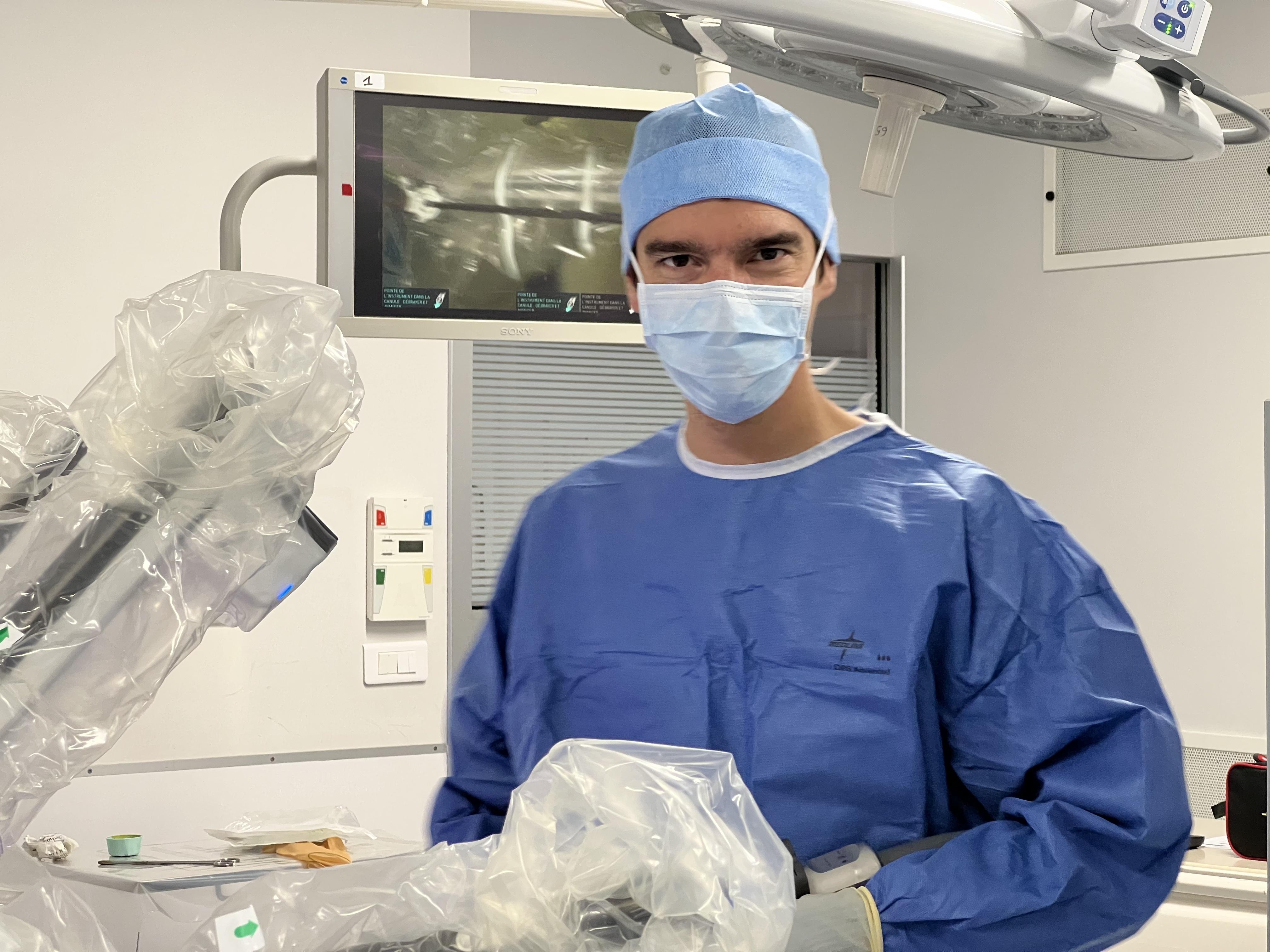Obesity surgery is associated with an 80% reduced risk of type 2 diabetes, according to a large study. These results clearly argue in favor of a broader practice.

Surgery for obesity could also be surgery for diabetes. Each year, 3% of morbidly obese people develop this chronic disease. Bariatric surgery allows them to go into remission. But it is possible to act sooner. Indeed, these interventions that boost weight loss also reduce the risk of type 2 diabetes by 80%. This is the conclusion of a study published in the Lancet Diabetes & Endocrinology.
Less diabetes in those who have been operated on
A team from King’s College London (United Kingdom) assessed the impact of bypass (1), sleeve gastrectomy (2) – or sleeve – and the gastric band on the occurrence of type 2 diabetes. For this, Professor Martin Gulliford and his colleagues recruited 2,167 obese people who were going to undergo one of these three procedures, and as many who joined a group control. The median duration of follow-up was 2.8 years, but it could be up to 7 years.
Among the members of the “bariatric surgery” group, only half had an upper gastric band fitted (3). 37% underwent a bypass, 15% a sleeve. The effect of these operations is clearly positive: 177 new cases of diabetes were diagnosed in the control group, against only 38 in the other group.
“Obesity surgery is preventive surgery”
This study confirms the benefits of bariatric surgery in the prevention of type 2 diabetes. Several have already delivered results in the same direction. But Dr Jacques Himpens, Belgian bariatric surgeon at Saint-Pierre University Hospital (Brussels, Belgium), is quite critical: “many questions remain unanswered”, he judges in a comment associated with the study. . “More evidence is needed to convince endocrinologists of the nature of this effect. He criticizes in particular the lack of management of obesity and the risks of diabetes in the subjects of the control group, as well as a relatively short follow-up.
Despite everything, the conclusions of this study remain important. Being overweight is the main modifiable risk factor in diabetes. “Our results suggest that bariatric surgery may be an effective method for preventing the development of diabetes in men and women with severe obesity,” said Professor Martin Gulliford, co-author of this study.
A shared shared by the Prof. David Nocca . “This means, roughly speaking, that obesity surgery is preventive surgery,” said the head of the bariatric surgery team at the Montpellier University Hospital (Hérault), contacted by why actor. “If you take a 20-year-old, obese with a BMI of 35, and you operate on him, he’s going to have a dramatically lower risk of diabetes,” he adds.
“We have waiting lists at three months”
But the applications of such a study are limited. In France, the health insurance still considers bariatric surgery to be treatment of “last resort.” “ Thus, the interventions are reimbursed when they are performed on obese people whose BMI exceeds 40, or if it is between 35 and 40 and the patient has serious comorbidities (diabetes, hypertension, sleep apnea … .).
The other limitation of bariatric surgery is the reception capacity of French hospitals. “The problem is that we carried out 44,000 operations last year, that there are still a lot of obese people over 40 to operate, and not enough places in the blocks. At the Montpellier University Hospital, we perform around 500 operations per year, which is a lot, and we cannot do much more ”, confides the Prof. David Nocca. “We have three-month waiting lists, while we operate every day. If in addition it is necessary to operate people in 30 and 35 … But I think it should be done, by selecting well. “
|
Three common forms of weight loss surgery (1) Gastric bypass : This is an intervention that “bypasses” most of the stomach and reduces it to a small pouch. The latter is directly connected to the small intestine. The first part of the intervention is qualified as “restrictive” because it reduces the quantity of food ingested, the second “malabsorptive” because it affects the assimilation of food. (2) Sleeve gastrectomy, Where sleeve gastrectomy : during the operation, 2/3 of the stomach is removed; this is the part that secretes the hormone that stimulates appetite (ghrelin). The stomach forms a vertical tube through which food passes through the intestine more quickly. This technique does not interfere with digestion, as food is slowed down as it passes through the tube. On the other hand, the capacity of the stomach is reduced. (3) Upper gastric band placement : a silicone ring is placed around the upper part of the stomach. An injection mechanism, which will be used to adjust the ring, is attached to the abdominal wall. Injecting a saline solution tightens the ring, which speeds up the feeling of fullness. Digestion is not affected, but the entry of food into the upper part of the stomach is slowed down. |
.

















